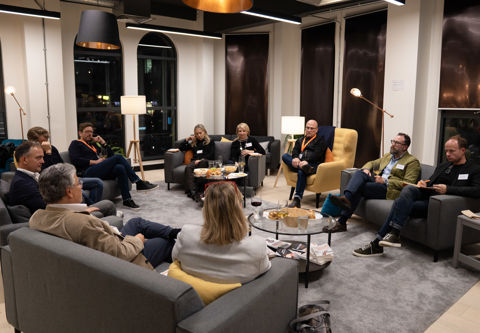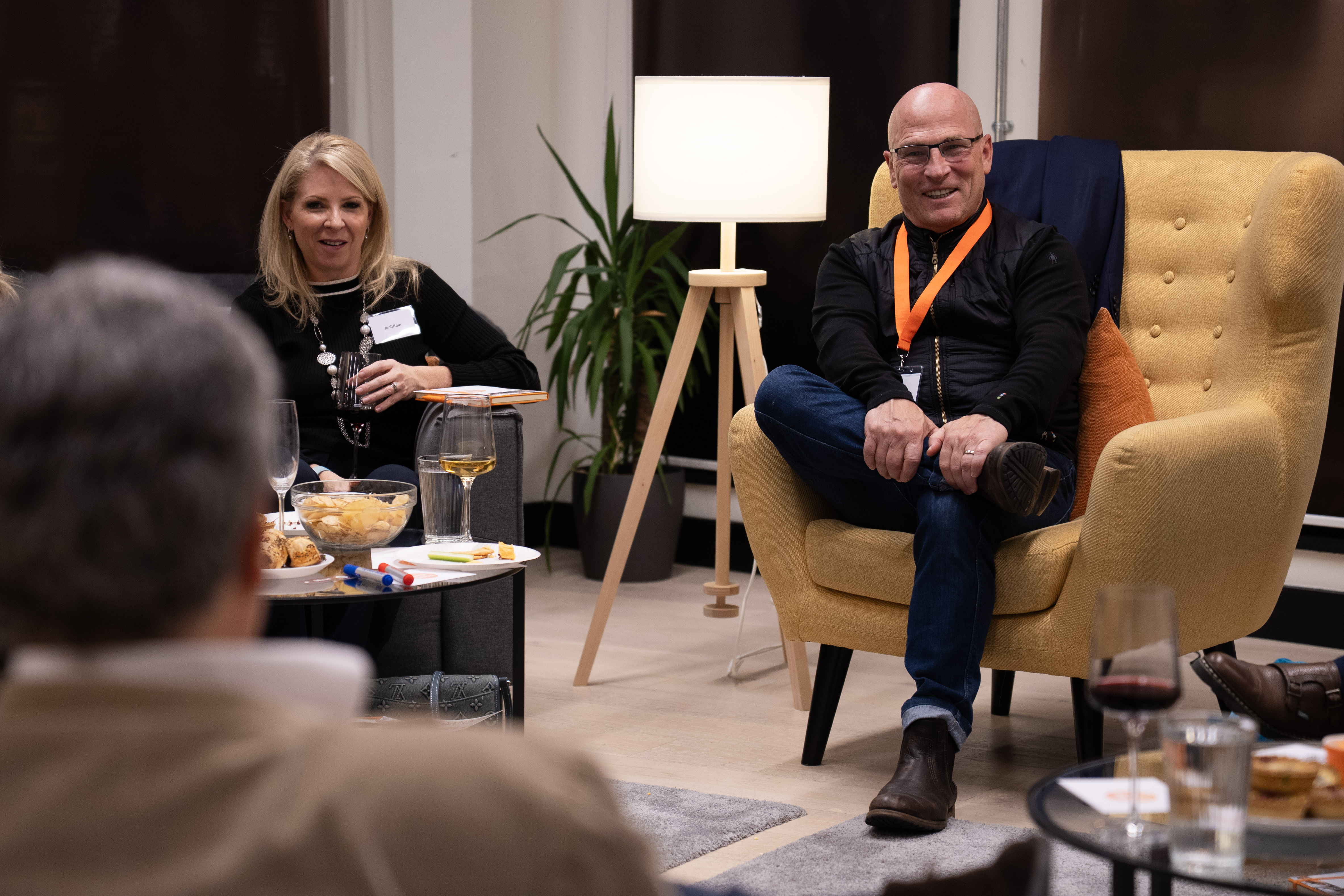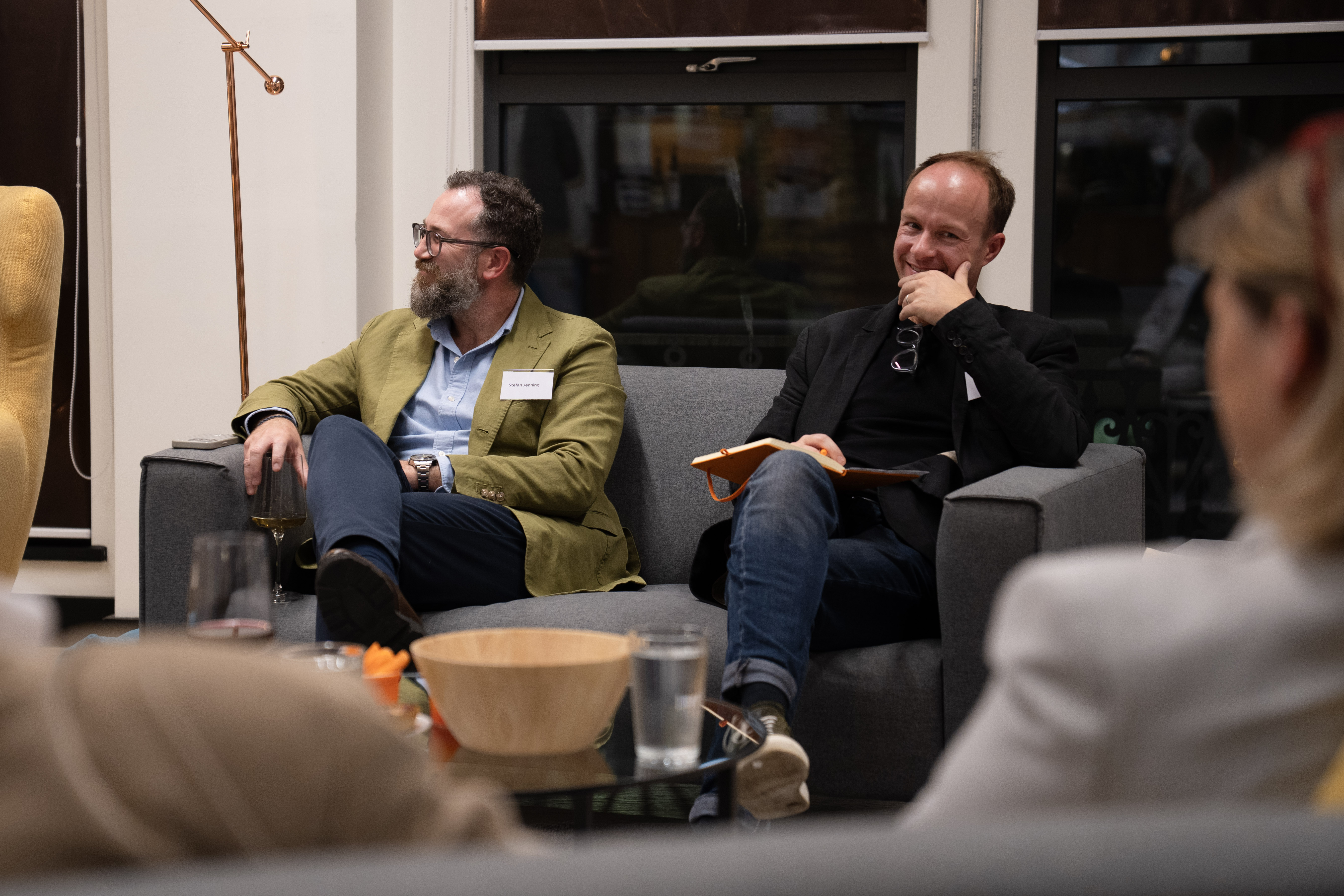Inside the Launch of the Inner Circle Community: How CFOs and COOs Build Trust That Lasts

In a world where finance and operations leaders are under relentless pressure to deliver more with less, what does it really mean to lead with integrity, resilience and humanity?
That question was at the heart of the first official gathering of Sullivan & Stanley’s Inner Circle Community, a new peer group created for Chief Finance Officers and Chief Operating Officers navigating the complexities of modern leadership.
Over the years, we’ve hosted countless dinners and roundtables with senior finance and operations leaders, and one thing became clear: these conversations needed a permanent home. The appetite for candid, cross-industry dialogue was so strong that we decided to create a dedicated space — a community designed for those who sit at the sharp end of enterprise performance, but who rarely get the chance to speak openly about what it takes to stay human while driving results.
And so, in our London HQ, over glasses of English sparkling wine and Rioja from Catalonia, Consulting Partner, Stuart Williamson facilitated an honest, raw and insightful conversation.

From predictability to agility: Balancing stability and change
The evening opened with a question that set the tone for the night: how can leaders remain dependable anchors for their teams while adapting quickly to change?
A former CFO from the print services sector shared his view that predictability is one of the most underrated leadership traits:
“If you’re unpredictable, people play with you. One day it’s a yes, another it’s a no. Be consistent, whatever it is — that’s how people learn to trust you.”
In his experience, financial leadership required clarity of rhythm, not to stifle innovation, but to give others the confidence to act. Predictability, he argued, was a form of care: a promise that decisions would be fair, rational and values-based.
But predictability alone is no longer enough. A retail CFO reflected on the impossible cost environment facing legacy businesses: rising rents, squeezed margins and post-COVID behavioural shifts. For him, survival demanded something closer to adaptive consistency.
“If we stayed the same, we wouldn’t have moved forward. The business was losing money. We had to reimagine everything - even what stability looked like.”
As the group explored the tension between discipline and fluidity, the consensus emerged that the best leaders are those who can provide a predictable compass, anchored in values not routine, while flexing how they lead in response to what the moment demands.
Culture and conflict: Turning tension into trust
Predictability quickly gave way to a bigger discussion: culture. Not the kind captured in annual surveys or value statements, but the lived reality of how leaders show up, especially when things go wrong.
One COO described inheriting a culture of “unhealthy competition” between front- and back-office teams:
“People were terrified to lose their jobs. Sales fought operations, operations fought finance. Everyone was chasing their own target, and we lost sight of the business.”
Others recognised that story all too well. A COO from the insurance sector put it bluntly:
“You can’t build performance on fear. The best teams have healthy conflict, not toxic conflict. They debate, they challenge, but they stay aligned on purpose.”
It was here that the room began to unpack the difference between being nice and being kind.
Kindness, as one former transformation director put it, is “being direct with care.” It’s telling hard truths with humanity. It’s about being grounded enough to have the difficult conversation rather than avoiding it.
As one participant summed up:
“Nice is ephemeral — it’s about comfort. Kind is measurable. It’s about action and courage.”
This distinction struck a chord. The leaders agreed that “kind leadership” isn’t soft; it’s disciplined. It’s the ability to hold people accountable without stripping away their dignity. It’s how resilience is built - in teams, and in individuals.
Metrics that matter: Beyond EBITDA
The CFOs in the room inevitably turned to the question of value creation. What do today’s financial metrics really tell us about business health?
Several reflected on the limits of EBITDA as a single measure of success, especially in environments where cost-cutting can artificially inflate short-term performance while starving the business of innovation.
“You can cost-cut your way to growth,” one CFO warned, “but it’s not sustainable. You can’t confuse efficiency with value creation.”
Others spoke of the need for focus. A COO from the consumer services sector shared how his company transformed its governance by identifying one defining metric — “the one thing that matters most.”
“Once we agreed that metric, everything else aligned. The debates stopped being about departments and started being about outcomes.”
The main takeaway here was an understanding that true enterprise leadership lies in balancing short-term rigour with long-term value. That means asking not just what we’re measuring, but why.

Leading through the human lens
The conversation then took a more personal turn. Leaders spoke candidly about the toll that sustained change takes on energy, confidence and wellbeing.
One CxO of a global tech firm shared the advice that changed his life:
“My boss said, ‘I’ll pay you well, but never spend it. Because once you need the money, you’ll make bad decisions.’”
For him, independence - financial and moral - was the ultimate safeguard of integrity. The group reflected on how few leaders today feel they can afford that freedom, and how the pressures of lifestyle, family and financial commitments can trap even the most principled executives into staying silent when they know they should speak up.
Another participant brought the point home:
“We talk about psychological safety for our teams — but how often do we create it for ourselves?”
It was a reminder that kindness to self is not indulgence, but necessity. As one COO said later in the evening, “You can’t lead if you’re running on empty.”
The ‘Fishbowl Effect’: The weight of visibility
Towards the end of the discussion, the conversation turned to the visibility of leadership. One attendee described being told by his people team that his mood visibly changed the tone of an entire floor.
“I walked in quietly one morning, and by lunchtime, they said the mood had dropped across the team. That’s the ‘Fishbowl Effect’. You don’t even realise how much people are watching.”
It sparked a shared recognition: leadership is both a privilege and a burden. The best leaders embrace that responsibility consciously, staying authentic, consistent and self-aware even when under pressure.
“If you don’t like the fishbowl,” one participant said, “don’t be a leader.”
Kindness as competitive advantage
What united every story was the belief that kindness is not weakness, it’s a competitive advantage. The organisations that will thrive are those where culture and performance aren’t opposites, but allies. Where leaders have the confidence to say, “I don’t have all the answers,” and the discipline to listen.
One leader described it best:
“The world moves fast. Technology moves faster. But kindness - that’s what makes people stay.”
As the evening drew to a close, there was laughter, relief and a sense of shared purpose. When asked to describe the night in a single word, the answers came easily: open, transparent, refreshing, comforting, exciting.
This is what the Inner Circle Community was built for. A place for CFOs and COOs to speak honestly, share experiences and explore what real enterprise leadership looks like when it’s grounded in humanity.
Because as one participant said on leaving:
“It’s good to know we’re not going insane on our own.”
The Inner Circle Community is a confidential, invitation-only network for CFOs and COOs leading transformation across industries.
If you’d like to join future discussions or nominate a peer, get in touch with us today.